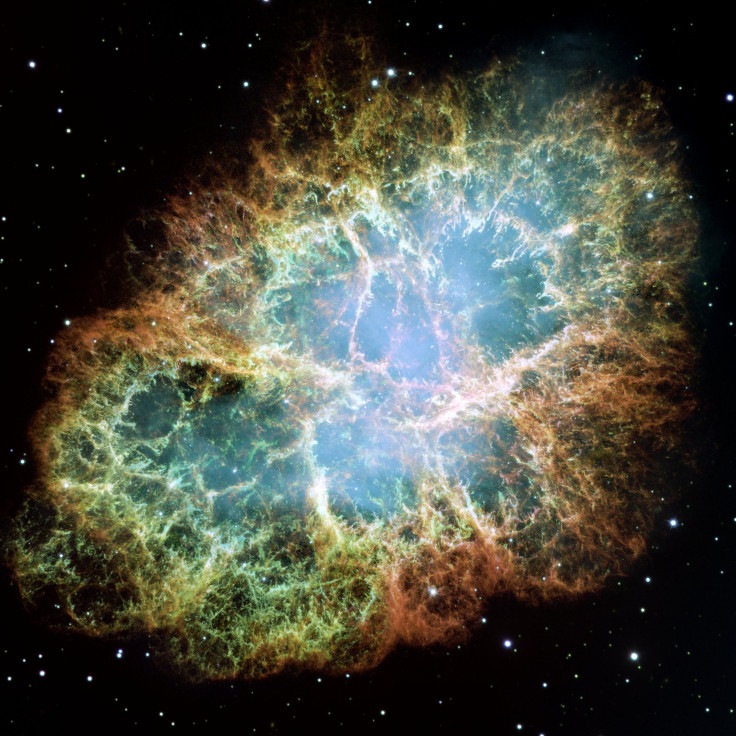White House Rejects Death Star Petition: Doomsday Devices US Could Build Instead

President Barack Obama disappointed both science fiction fans and national defense hawks recently when he politely declined to build a Death Star.
A petition to construct a Death Star by 2016 garnered more than 34,000 signatures, which requires a response from the administration. Paul Shawcross, the chief of science and space branch at the White House Office of Management and Budget, let the nerds down gently over the weekend.
“Why would we spend countless taxpayer dollars on a Death Star with a fundamental flaw that can be exploited by a one-man starship?” Shawcross asked.
Plus, as the White House noted, the construction of such a massive space station would hardly be fiscally responsible.
Writers at the economics blog Centives calculated that just buying enough steel to make a Death Star would cost $852 quadrillion (that's 852 with with 15 zeroes after it) -- roughly 13,000 times the world's gross domestic product – and, at current rates of steel production, would not be ready for more than 833,000 years. That doesn’t even factor in all the other costs associated with an imperial space station: planet-destroying lasers, storm trooper uniforms, slow-moving trash compactors and the like.
Moreover, since the latest scientific estimates peg the number of possible Earth-sized planets in the galaxy at 17 billion, it’s clear that America would need something with a little more firepower to maintain a true galactic empire. Blowing up planets one by one is a terribly inefficient way of subordinating the universe.
The president could find the answer in looking beyond the original "Star Wars" trilogy into the related novels of the Expanded Universe. In those pages, we find an Imperial superweapon called a Sun Crusher, which is no bigger than an average starfighter but can take out entire star systems by making targeted stars go supernova with special “resonance torpedoes.”
Not only would the smaller yet deadlier Sun Crusher likely be a more economical solution, it’s likely more politically efficient. Planets in the vicinity of rebellious worlds would likely be more inclined to put down local unrest, for fear of their entire star system going up in flames.
However, it turns out that in the real world killing stars is a bit of a challenge – they’re so huge and hot that our biggest nuclear bombs would feel like the barest gnat bites to them.
Some science fiction authors have floated the idea of “poisoning” a star’s fusion reactions by leaching heat from a star’s core. In Stephen Baxter’s Xeelee Sequence novels, dark matter-based life forms called “photino birds” live inside stars and feed off of the energy inside, causing them to cool down. But since we’re not made of dark matter, the most we could try and do is hurl a bunch of regular matter into the sun to try and knock its reactions off course.
Except most stars are too big and massive for that method to work, according to Princeton physicist Mike Zarnstorff.
“Even if you swept up all of the planets in the solar system” and deposited them into our sun, Zarnstorff told LiveScience in September, "the sun wouldn't really notice at all.”
A more feasible way of destroying a star would be to launch a black hole into its center, sucking up the star (and likely any rebellious planets) into oblivion. A millimeter-sized black hole with a mass equal to the moon would probably serve to dispatch a star the size of our sun, Zarnstorff told LiveScience.
Unfortunately, the only black holes that humans might have been able to produce thus far haven’t even been confirmed to exist yet. Supercolliders like the Large Hadron Collider in Europe are thought to be able to produce tiny black holes that exist for billionths of seconds and present virtually no threat.
Even though America might not be able to blow up entire planets yet, Americans can take heart that with a nuclear warhead stockpile numbering in the thousands, we already have the means to make life pretty unpleasant on Earth.
© Copyright IBTimes 2024. All rights reserved.





















